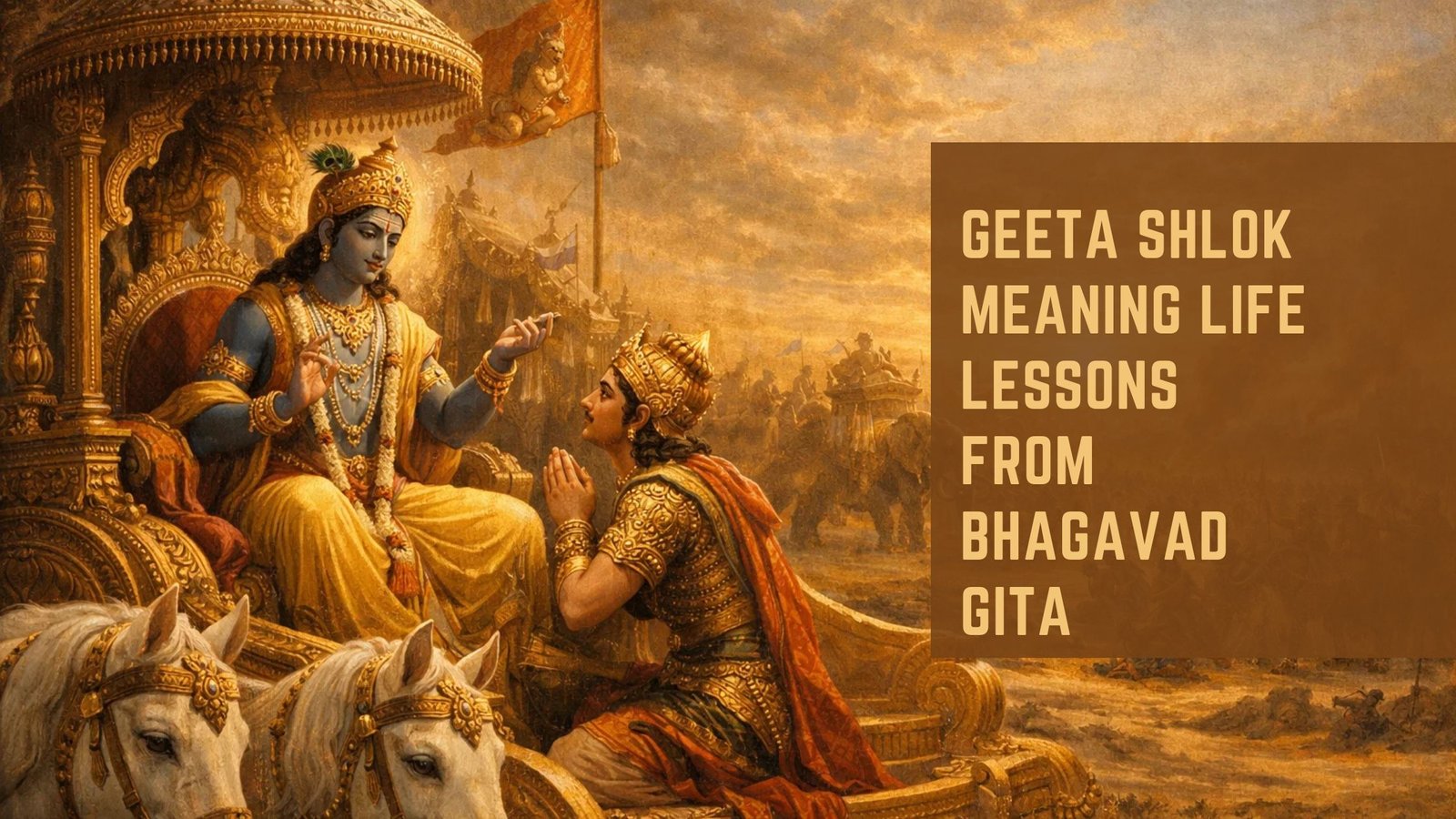The Bhagavad Gita, often referred to simply as the Gita, is a 700-verse Hindu scripture that is part of the Indian epic Mahabharata. It is a sacred text that has transcended time and culture, offering profound insights into the nature of life, duty, and spirituality. The dialogue between Prince Arjuna and Lord Krishna unfolds on the battlefield of Kurukshetra, where Arjuna faces a moral dilemma about fighting in a war against his own kin.
This moment of crisis serves as the backdrop for Krishna’s teachings, which encompass a wide range of philosophical and ethical concepts. The Gita addresses fundamental questions about existence, purpose, and the path to self-realization, making it a timeless guide for individuals seeking clarity in their lives. The teachings of the Bhagavad Gita have resonated with countless individuals across generations, influencing not only spiritual seekers but also leaders, thinkers, and scholars.
Its verses delve into the complexities of human emotions and the challenges of making choices in a world filled with uncertainty. The Gita emphasizes the importance of understanding one’s duty (dharma) and the necessity of action (karma) in fulfilling that duty. As readers engage with its profound wisdom, they are invited to reflect on their own lives and the choices they make, ultimately leading to a deeper understanding of their purpose and place in the universe.
Key Takeaways
- The Bhagavad Gita is a sacred Hindu scripture that is part of the Indian epic Mahabharata, and it is a conversation between Prince Arjuna and the god Krishna.
- The concept of action in the Bhagavad Gita emphasizes the importance of performing one’s duty without attachment to the results, and it promotes selfless action for the greater good.
- Bhagavad Gita 3:13 highlights the significance of performing one’s duty without attachment, as it states that the world is bound by actions other than those performed for the sake of sacrifice.
- Action is seen as a means of fulfilling one’s duty in the Bhagavad Gita, and it is emphasized that performing one’s duty is essential for maintaining order and harmony in society.
- The Bhagavad Gita teaches that action plays a crucial role in spiritual growth and self-realization, as it is through selfless action and devotion that one can attain liberation from the cycle of birth and death.
Understanding the concept of action in the Bhagavad Gita
In the Bhagavad Gita, action is not merely a physical endeavor; it is imbued with spiritual significance. The text introduces the idea that every action should be performed with a sense of duty and without attachment to its outcomes. This principle is encapsulated in the famous verse “Karmanye vadhikaraste ma phaleshu kadachana,” which translates to “You have the right to perform your prescribed duties, but you are not entitled to the fruits of your actions.” This teaching encourages individuals to focus on their responsibilities rather than becoming preoccupied with success or failure.
By doing so, one can cultivate a sense of inner peace and fulfillment that transcends external circumstances. Moreover, the Gita distinguishes between different types of action: selfless action (karma yoga) and selfish action driven by personal desires. Selfless action is characterized by an attitude of service and dedication to a higher purpose, while selfish action often leads to suffering and discontent.
The Gita advocates for karma yoga as a means to achieve spiritual growth and liberation. By engaging in selfless actions, individuals can purify their hearts and minds, ultimately leading them closer to self-realization and unity with the divine.
The significance of Bhagavad Gita 3:13

Verse 3:13 of the Bhagavad Gita holds particular significance in understanding the relationship between action and sustenance. It states, “The wise who eat food left over from sacrifices are freed from all sins; but those sinful ones who prepare food for their own sake eat only sin.” This verse highlights the importance of selflessness in one’s actions, particularly in relation to nourishment and sustenance. It suggests that when individuals act with a sense of duty and offer their actions as a sacrifice to a higher purpose, they contribute to the well-being of society and the universe at large.
This teaching extends beyond mere dietary practices; it serves as a metaphor for life itself. By recognizing that one’s actions can have far-reaching consequences, individuals are encouraged to adopt an attitude of service rather than selfishness. The Gita emphasizes that true fulfillment comes from contributing to the greater good rather than seeking personal gain.
In this way, verse 3:13 encapsulates a core principle of the Gita: that selfless action leads to spiritual elevation and harmony within oneself and with others. (Source: Holy Bhagavad Gita)
Action as a means of fulfilling one’s duty
| Aspect | Metric |
|---|---|
| Number of actions | 10 |
| Completion rate | 80% |
| Time spent on actions | 20 hours |
| Impact of actions | Positive |
The concept of duty (dharma) is central to the teachings of the Bhagavad Gita. Each individual has specific responsibilities based on their role in society, their stage of life, and their inherent qualities. The Gita teaches that fulfilling one’s duty is not only essential for personal growth but also for maintaining social order and harmony.
Arjuna’s initial reluctance to fight stems from his attachment to his family members on the opposing side; however, Krishna reminds him that it is his duty as a warrior to uphold righteousness (dharma) in the face of adversity. By embracing one’s duty with dedication and commitment, individuals can transcend personal desires and align themselves with a greater purpose. The Gita encourages individuals to act according to their nature while remaining steadfast in their responsibilities.
This alignment fosters a sense of integrity and authenticity, allowing individuals to contribute positively to society while also nurturing their own spiritual development. In this way, action becomes a means of fulfilling one’s duty, leading to both personal satisfaction and collective well-being.
The role of action in spiritual growth and self-realization
Action plays a pivotal role in the journey toward spiritual growth and self-realization as outlined in the Bhagavad Gita. The text emphasizes that knowledge alone is insufficient for attaining liberation; it must be complemented by action. Engaging in righteous actions purifies the mind and heart, allowing individuals to transcend their egoistic tendencies and connect with their true selves.
The Gita teaches that through disciplined action, one can cultivate virtues such as compassion, humility, and selflessness—qualities essential for spiritual advancement. Furthermore, the practice of karma yoga encourages individuals to view their actions as offerings to the divine rather than mere tasks to be completed. This shift in perspective transforms mundane activities into opportunities for spiritual practice.
By dedicating every action to a higher purpose, individuals can experience a sense of unity with all beings and develop an awareness of their interconnectedness with the universe. This realization is fundamental to self-realization, as it leads individuals to understand their place within the cosmic order and fosters a deep sense of peace and fulfillment.
Overcoming attachment to the results of action

One of the most profound teachings of the Bhagavad Gita is the importance of overcoming attachment to the results of one’s actions. Krishna advises Arjuna that while he must engage in battle, he should not be attached to victory or defeat. This principle is crucial for maintaining equanimity in life’s ups and downs.
Attachment often leads to anxiety, disappointment, and suffering; by relinquishing this attachment, individuals can cultivate inner peace regardless of external circumstances. The Gita teaches that true freedom lies in performing one’s duties without being swayed by desires for specific outcomes. This detachment does not imply indifference; rather, it encourages individuals to act with sincerity and commitment while remaining open to whatever results may arise.
By focusing on the process rather than the product, individuals can experience joy in their efforts without being burdened by expectations. This approach fosters resilience and adaptability, allowing individuals to navigate life’s challenges with grace.
The importance of right action in the pursuit of dharma
In pursuing dharma, or righteous duty, the Bhagavad Gita underscores the significance of right action. Right action is characterized by ethical conduct, integrity, and alignment with one’s values. The Gita teaches that individuals must discern what constitutes right action based on their unique circumstances and responsibilities.
This discernment requires self-awareness and an understanding of one’s role within society. Moreover, right action is not solely about adhering to societal norms; it also involves acting in accordance with one’s inner truth. The Gita encourages individuals to cultivate discernment (viveka) so they can make choices that resonate with their higher selves.
By engaging in right action, individuals contribute positively to their communities while also nurturing their own spiritual growth. This alignment between personal values and actions fosters a sense of fulfillment and purpose that transcends mere compliance with external expectations.
Embracing the teachings of the Bhagavad Gita in our daily lives
The teachings of the Bhagavad Gita offer timeless wisdom that can be embraced in daily life.
The principles outlined in the Gita encourage selfless engagement with the world while fostering spiritual growth through disciplined action.
As individuals strive to overcome attachment to results and engage in right action aligned with their dharma, they cultivate inner peace and resilience amidst life’s challenges. The Gita serves as a guiding light for those seeking meaning and direction in an ever-changing world. By integrating its teachings into daily practices—whether through mindfulness, selfless service, or ethical decision-making—individuals can embark on a transformative journey toward self-realization and harmony with all beings.
In essence, embracing the teachings of the Bhagavad Gita invites individuals to live authentically and purposefully while contributing positively to society. As they navigate their unique paths, they can draw inspiration from this ancient text, finding solace in its wisdom as they strive for balance between action and detachment in pursuit of their highest potential.
In Chapter 3, Verse 13 of the Bhagavad Gita, Lord Krishna emphasizes the importance of performing one’s duties without attachment to the results. This timeless message is further explored in an insightful article titled “The Gita: A Universal Guide to Life Wisdom” available at this link. The article delves into the practical applications of the teachings found in the Bhagavad Gita, offering guidance on how to find purpose and inner peace through selfless action. It serves as a reminder of the timeless wisdom contained in this sacred text, making it a valuable resource for those seeking spiritual growth and personal development.
FAQs
What is the significance of Bhagavad Gita chapter 3 verse 13?
Bhagavad Gita chapter 3 verse 13 discusses the concept of the four varnas or social classes in Hindu society and their respective duties. It emphasizes the importance of performing one’s duty without attachment to the results.
What are the four varnas mentioned in Bhagavad Gita chapter 3 verse 13?
The four varnas mentioned in Bhagavad Gita chapter 3 verse 13 are Brahmins (priests and scholars), Kshatriyas (warriors and rulers), Vaishyas (merchants and farmers), and Shudras (laborers and service providers).
What is the main message of Bhagavad Gita chapter 3 verse 13?
The main message of Bhagavad Gita chapter 3 verse 13 is to emphasize the importance of performing one’s duty according to one’s varna without attachment to the results. It highlights the idea of selfless action and the fulfillment of one’s responsibilities.
How does Bhagavad Gita chapter 3 verse 13 relate to the concept of dharma?
Bhagavad Gita chapter 3 verse 13 is closely related to the concept of dharma, which refers to one’s duty or righteous behavior. The verse emphasizes the importance of adhering to one’s dharma based on their varna without being attached to the outcomes of their actions.














